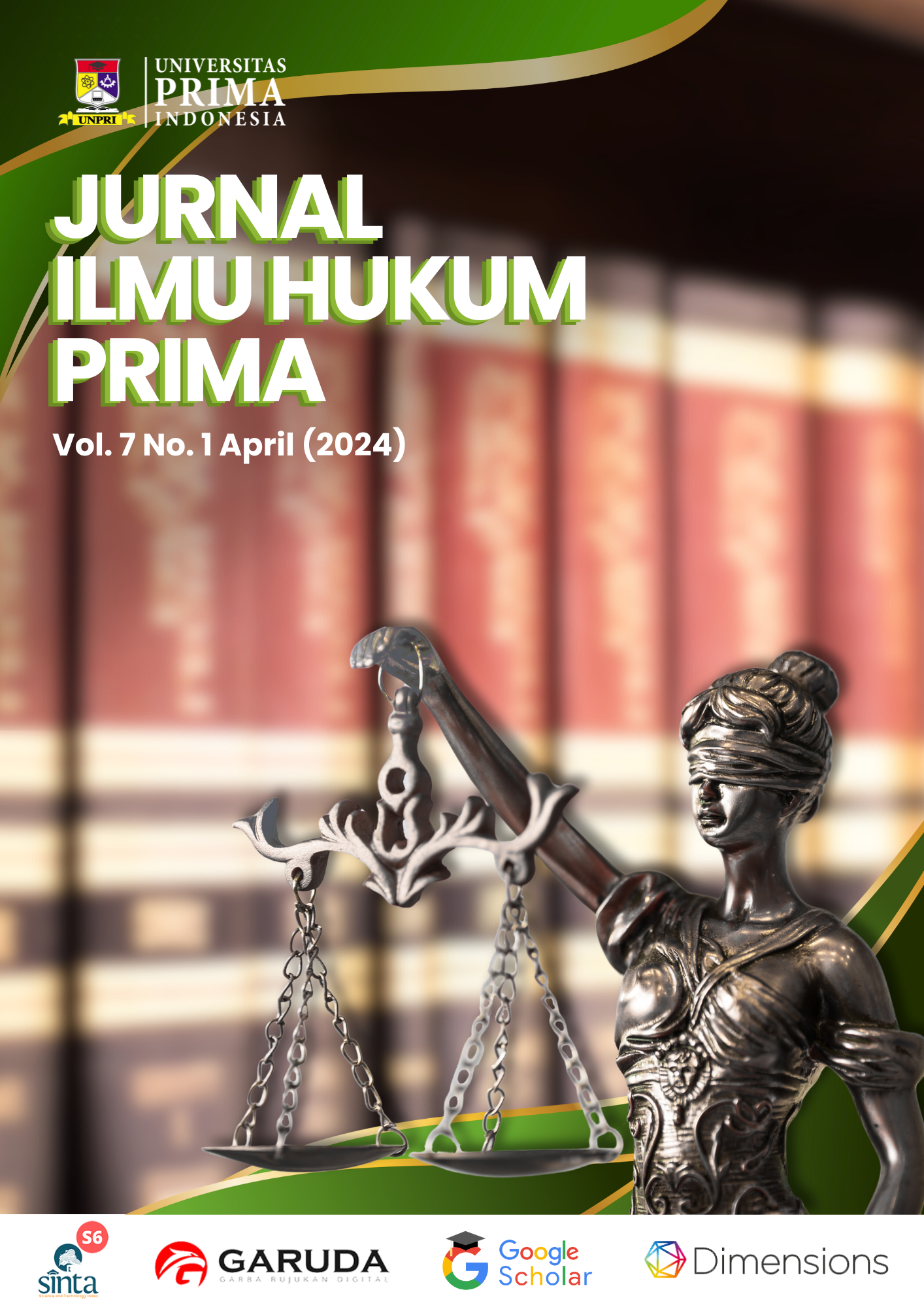FUNGSI ASAS INDEPENDENT JUDICIARY DALAM MEWUJUDKAN KEBERHASILAN KEADILAN RESTORATIF SUATU PERSPEKTIF TEORI KEADILAN BERMARTABAT
##plugins.themes.academic_pro.article.main##
Abstract
The main issue of this paper revolves around the conventional Criminal Law (Procedure), which has been felt to be less able to fulfill the needs of justice than justifiable. Therefore, this research aims to find alternative rules/institutions, in addition to the rules/institutions of conventional criminal law, to fulfill human and community needs for justice. The rule/institution in question has recently become famous worldwide and exists as an heirloom of the Indonesian legal system in the phrase restorative justice. The legal issue of this research is that, according to some people, the rules or institutions referred to as restorative justice need a more robust legal basis. By using the theory of Dignified Justice as a theoretical or philosophical framework, this research shows that there is a possibility that a solid legal basis can be referred to, for the time being, in justifying the existence of restorative justice. In addition, the principle of an independent judiciary "married" as part of the rule of law can function to realize the successful use of restorative justice in bringing humanizing justice. The research method used in searching and finding a "way out" for the above problems is a pure legal research method from the perspective of Dignified Justice theory. It was found that restorative justice is the Indonesian nation's legal heritage, which can be derived from Pancasila, which is the highest source of law in the Indonesian legal state.

